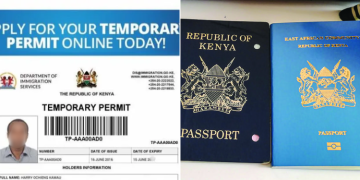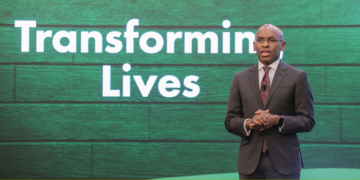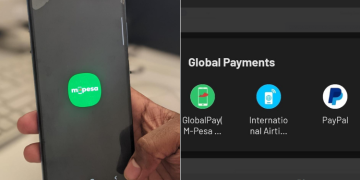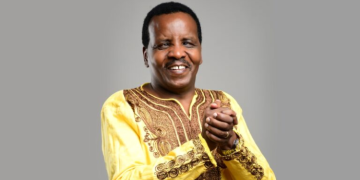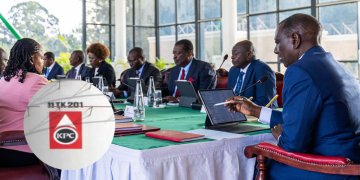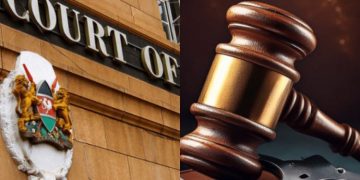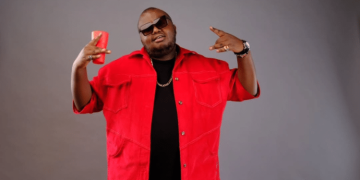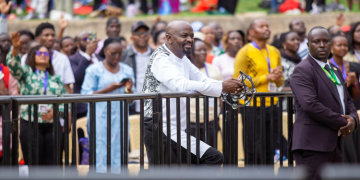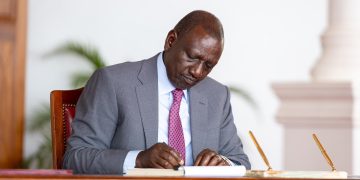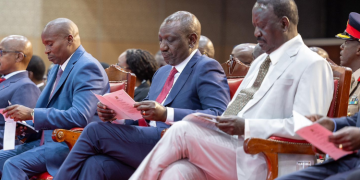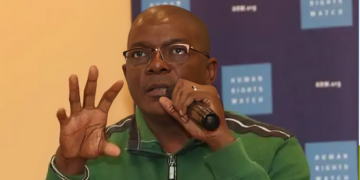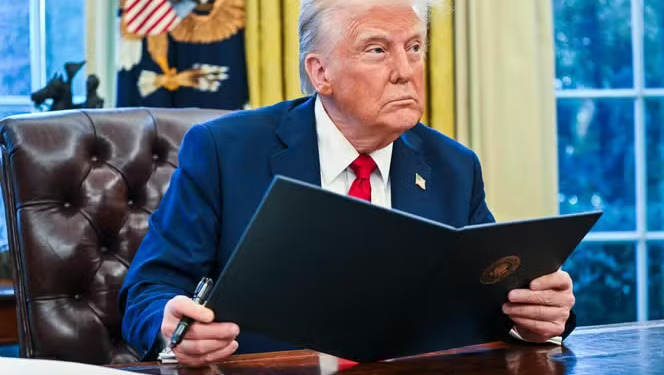During a private meeting in May at the White House, Attorney General Pam Bondi told President Donald Trump that his name was among those listed in the materials reviewed as part of the Justice Department’s reopened investigation into Jeffrey Epstein, according to several sources familiar with the meeting.
Bondi met with Trump and Deputy Attorney General Todd Blanche to update them on the results of the Justice Department’s re-examination of the Epstein case, the officials said, adding that the “routine briefing” presented a general overview of the findings.
Bondi also let Trump know that his name was not unique within the materials, and that there was no “client list” and no evidence to suggest that Epstein’s 2019 death was not a suicide.
The materials also did not contain any information that investigators said they could not confirm or validate, such as what the DOJ described as a “murder list” or any so-called “secret bank account” that Epstein may have had, the officials said.
White House Knew Trump Was Named in Epstein Files
As for Trump, the materials reportedly contained unverified allegations, some of which the DOJ had already disregarded or did not believe to be credible, and they included some that mentioned Trump.
It is not known for what reason Trump’s name was included. He is known to have been social with Epstein during the 1990s and early 2000s.
They are reported to have split amicably when Trump banned Epstein from Mar-a-Lago after an incident where a young female guest was discovered. The White House has pointed that out several times as evidence that Trump cut ties with Epstein early.
Trump was made aware of the inclusion of his name in May, but in June, he denied to a reporter that he had been told it was in the materials. “No, no. She’s given us just a very quick briefing,” Trump said, when he was pressed by the reporter to confirm his awareness.
The discrepancy has since renewed interest in the DOJ’s handling of Epstein materials, especially after a second round of DOJ materials that were shared and circulated among Hill staff in February had already mentioned Trump. Some of those materials even had contact information for members of Trump’s family.
White House Communications Director Steven Cheung said the reporting was “pure politics.” “The President kicked him out of his club for being a creep. This is nothing more than a continuation of fake news stories concocted by Democrats and the liberal media.”
Also Read: Trump Frustrated as Judge Permits 500,000 Migrants to Remain in the US
Epstein Case Faces Legal Hurdles as Congress Issues New Subpoenas
As the White House sought to downplay the matter of the Epstein file disclosures, legal and legislative challenges have mounted.
On July 17, the Justice Department submitted a filing in federal court in Florida, requesting that grand jury transcripts related to Epstein’s 2006 Florida case be unsealed.
Citing the “extraordinary public interest” in the matter and the president’s instruction that it should “be transparent,” DOJ attorneys asked for the release of transcripts it said would not implicate grand jury secrecy rules.
The motion was immediately rejected by Judge Robin Rosenberg, who said that grand jury secrecy laws have left the court with “tied hands.” Judge Rosenberg, in a 12-page opinion, said the transcripts, as salacious and politically relevant as they are, are still protected by state and federal grand jury secrecy guidelines.
Simultaneous efforts to release related materials in the Southern District of New York are also on hold. The prosecutors in that jurisdiction have also sought permission to unseal related materials that were part of Epstein’s 2019 sex trafficking indictment.
But two judges are presiding over that request. Justice Department officials also privately admit that if such transcripts were to be released, they likely will not reveal much beyond perfunctory summaries of legal procedures.
Congress has also upped the ante on the DOJ and the White House. On July 23, the House Oversight Subcommittee on Federal Law Enforcement voted 8–2 to approve a subpoena for the entire Epstein case file.
In the vote, three Republican members of the committee, Reps. Nancy Mace of South Carolina, Brian Jack of Georgia, and Scott Perry of Pennsylvania took the party line from Democrats and instead voted in favor of the subpoena.
The subpoena requires the Justice Department to provide all documents and communications related to Epstein’s case, including any and all contact with former President Joseph R. Biden Jr. The committee also required the DOJ to redact the names of child victims and any other graphic information from the files.
That same day, the committee also issued a subpoena for Ghislaine Maxwell, Epstein’s longtime associate who is currently serving a 20-year sentence for sex trafficking minors.
Her deposition is scheduled for August 11 and is expected to occur remotely from the Florida federal prison where she is incarcerated. Maxwell’s attorney, David Oscar Markus, told media outlets that while she is weighing whether to testify, she “intends to tell the truth” if she proceeds.
Other subpoenas greenlit by the committee include figures long entwined in Trump-era and Epstein-adjacent controversies: former President Bill Clinton, former Secretary of State Hillary Clinton, former FBI Director James Comey, special counsel Robert Mueller, and multiple former attorneys general from both parties.
Oversight Committee Ranking Member Robert Garcia, a California Democrat, called the day’s vote “a rare bipartisan win for transparency,” adding, “Let’s be clear: this is a huge win for the American people.”
Also Read: Trump’s Secret in Ukraine Arms Shipment Resumption
Epstein Controversy Sparks Political Fallout for Trump Administration
The Trump administration’s abrupt decision to end additional disclosures of Jeffrey Epstein’s case has created deep fissures across the Republican base, drawing rare bipartisan rebuke.
During his 2024 campaign, Trump has promised that the government will release all files related to Epstein’s death, alleged client list, and possible links to political elites. But that assurance had already collapsed by early July.
In a July 7 memo, the DOJ said that it was “closing out” the Epstein case, stating that investigators found no “client list” and reiterating that Epstein had died by suicide in 2019 while in federal custody.
The memo, coupled with Trump’s backtracking on earlier transparency promises, provoked an angry response from MAGA influencers and several Republican lawmakers who had for long described Epstein’s network of abuse as “deep state” corruption.
Outrage from the right spread across conservative media, stoking conspiracy-laden outrage from segments of Trump’s base. In response, House Speaker Mike Johnson decided to cut short the summer legislative session by one day in order to avoid floor votes on the files and spare the administration from additional pressure.
The controversy, however, only grew from there. A CBS News/YouGov poll conducted before the July memo was released found that 89% of Americans, including 83% of Republicans, think the Justice Department should release all Epstein-related documents. Among Republicans, 36% said they disapprove, one of the highest intra-party divides seen during Trump’s presidency.
Trump’s overall approval rating among Republicans has so far largely remained intact despite the backlash. Republicans not aligned with MAGA have expressed deeper frustration with Trump, with nearly 60% of them saying they are not satisfied.
Trump has tried to shift the narrative, posting social media attacks against political adversaries and dusting off old grievances against people like Barack Obama and Adam Schiff in a familiar playbook of deflection and blame.
His legal team also sued The Wall Street Journal in a $10 billion defamation lawsuit, triggered by the newspaper’s report that Trump had sent Epstein a risqué birthday card with a sketch of a nude woman in 2003.
Trump has denied that he ever sent the card, reportedly telling the media ‘I don’t draw pictures’. The backlash to the story, including that drawing, which was allegedly signed by Trump, only increased calls for transparency.
Still, the White House has remained defiant. White House Communications Director Steven Cheung said in a statement that “there is no evidence President Trump was involved in any wrongdoing,” also insisting that critics are “fueling a media hoax.”
But as new subpoenas are enforced and testimony, particularly Ghislaine Maxwell’s, draws near, the political fallout for Trump may be harder to spin and control.
With midterms on the horizon, the Epstein files have become a powerful and potentially destabilizing political force in American politics.
Follow our WhatsApp Channel and X Account for real-time news updates




